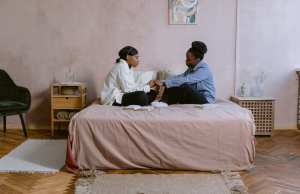Dialectical behavior therapy (DBT) is a form of the better-known cognitive behavioral therapy, which was developed by Marsha Linehan in the late 1980s. It highlights the importance of individual therapy as well as group skills training and teaches clients helpful skills such as mindfulness, distress tolerance, and emotion regulation.
While DBT was initially developed to treat suicidal individuals, it is now used to treat a range of disorders—from depression to anxiety, substance abuse, and post-traumatic stress disorder (PTSD)—in addition to helping clients address a variety of other issues. Mara Rose Smith, a higher education professional and lifestyle blogger, is among the many that have found dialectical behavior therapy to be extremely beneficial and she’s here to tell you about the good it has done for her. The following are four valuable lessons she learned from her therapist, which she carries with her every single day:
1) Feelings are not facts.
First on the list is the important lesson that feelings are not facts. “Just because we feel an emotion doesn’t mean that it’s true,” Smith explains. “For example, just because I feel offended doesn’t mean that I’m being purposely attacked.” She’s realized what many never realize: our thoughts control our feelings. Instead of allowing yourself to react negatively to a given situation, take a second to refocus your thoughts. Is your anger warranted? Is it beneficial to react this way? The answer is oftentimes no. Make the conscientious effort to focus on what you can and can’t control, including your thoughts and, in turn, your feelings.
2) It’s good to self-indulge.
Smith also learned that it’s important to allow ourselves little self-indulgences each day. “In my group therapy, my therapist always had us go around the room at the end and share one fun thing we planned to do before our next meeting. It’s important to consciously increase joyful experiences in our lives,” she says. More often than not, we neglect fun and put our favorite activities on the back burner. We chalk it up to not having enough time or having more important things to do, but the truth is that enjoying ourselves is incredibly important and should be one of our top priorities. So make it a goal to do something just for you each day: take a relaxing bath, read a chapter in your new book, indulge in your favorite ice cream, go out with your friends. Whatever it is that brings you joy, do it!
3) Pain is inevitable, but suffering is optional.
Another valuable takeaway Smith got from dialectical behavioral therapy is that pain is inevitable, but suffering is option. “Suffering is the refusal to accept reality. Oftentimes, we cause ourselves to suffer by ruminating over the past or worrying about the future. By staying in the present moment and accepting things as they come, we allow ourselves to break free from suffering.” I’m guilty of living in the past and concerning myself with what may happen in the future—and because of this, I experience a lot of anxiety. Fortunately, however, I’ve recently learned to shift my focus to the present and free myself of this pain just as Smith has done. And you have the power to do the same! Practice mindfulness by turning your attention to where you are, what you’re doing, and how you’re feeling right now.
4) Therapy is a journey, not a destination.
And lastly, Smith learned that therapy is a journey, not a destination. “We’re not perfect beings, and we’re never going to be perfect. It’s awesome to master mental health skills, but we’re going to slip up sometimes, and that’s okay. Acceptance of our imperfections is another way to avoid suffering.” Many people go into therapy expecting or hoping the therapist will solve their problems or turn them into perfect beings. But the truth is that “perfect” doesn’t exist. All any of us can do each day is try our best and accept ourselves even when we come up short. Allowing ourselves to make mistakes will make for a much happier, healthier life, as explained by Smith. However, that’s not to say that you can’t set out to improve yourself each day, such as through therapy.













